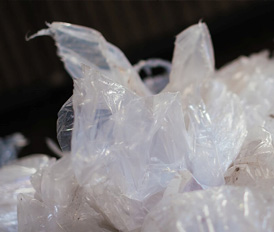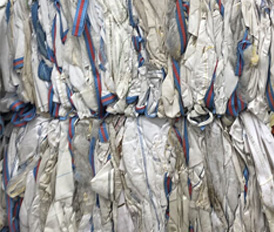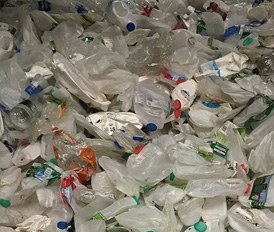Achieving a Circular Economy in Romania Through Plastics Recycling
by George Kiernan
Pakire Polymers News
Plastic Waste
The problem of plastic waste continues to be a growing concern in Europe, where 29 million tonnes of it are produced every year. Only 32% of this material is recycled, with over 40% of it being incinerated to produce energy.
Most shockingly, over 25%, or over 7 million tonnes, of this plastic waste ends up in landfill sites, meaning we are losing these valuable resources from the economy for them to instead become pollution and cause harm to the environment.
EU Recycling Targets
In an effort tackle to this issue, the European Plastic Strategy was published in 2018 with the goal of establishing a more comprehensive and efficient system for the segregation, collection, and recycling of plastic waste. The strategy aims for all plastic packaging in the EU market to be recyclable by 2030 and to achieve a recycling rate of 55% for plastic packaging waste.
However, many EU countries, including Romania, still have a long way to go in reaching these targets. In Romania, the recycling rate for plastic and synthetic materials is only 14%. In fact, Romania has the lowest levels of circular use of materials in all of Europe, with only 1% of materials being recycled and reintroduced into the economy in 2021 – a sharp contrast to the EU average of 11.7%.
The EU’s Circular Economy indicator set measures the contribution of recycled materials to meeting the overall demand for materials. This indicator is a critical component in the EU’s efforts to reduce pressure on natural resources and create sustainable growth and jobs during its transition to a circular economy.
While other countries have made significant strides in this area, Romania’s performance has fallen short. The highest circular material use rate was recorded in the Netherlands (34%), followed by Belgium (21%) and France (20%). On the other hand, the lowest rates were recorded in Romania (1%), and Finland and Ireland (both 2%).
Circular Economy Action Plan
The European Commission adopted a new Circular Economy Action Plan (CEAP) in March 2020, aimed at accelerating the EU’s transition to a circular economy. The CEAP announced initiatives along the entire life cycle of products and included requirements on eco-design, waste prevention and reuse, clean material cycles, and very demanding targets on increasing recycling and reducing landfilling. The plan also includes obligations to improve the separate collection of waste and incentivising efficiency in the use of bio-based resources.
In comparison to 2020, the EU’s average rate decreased by 0.1% last year. Although the rate had been steadily growing from 8.3% in 2004 to 12% in 2019, the pandemic caused a slight decline in the rate.
These figures have sparked debate across Romania on the need for the government to take stronger action to tackle the country’s waste management crisis. Environmentalists and activists are calling on the government to take swift and decisive action to reduce waste, promote recycling, and create a more sustainable future.
Pakire Polymers
At Pakire Polymers, we agree that the government needs to be firmer in its approach to increasing the rates of recycling and circular use of plastic materials in Romania if the country is to stand any chance of reaching the EU targets.
Too little has been done for too long in Romania to transition the country towards a circular economy, and we cannot allow this complacency to continue. Meaningful and continued investment in, and support for, the Romanian recycling sector is urgently needed to increase the rates of Recycling in Romania. The government must work with recyclers to raise the standards for circularity and sustainability throughout Romania, and to design effective legislation, programmes and incentives to increase participation in recycling at all levels of the economy.
Pakire Polymers is a specialist plastic recycling facility in Bucharest, Romania, comprised of the most advanced machinery in the industry. Our team of recycling specialists and expert chemical engineers design our recycling services to ensure that the materials we process are handled in the most efficient and sustainable way possible. We keep as much of the materials as possible in use within the economy to protect natural resources and extract the maximum value from them to ensure recycling is an economically viable practice. The Pakire model represents what is possible, even scaled across an entire country.
Share article on your social media
More related articles
Work with Us
If you have a passion for recycling and for achieving a sustainable future, then we want to hear from you.





